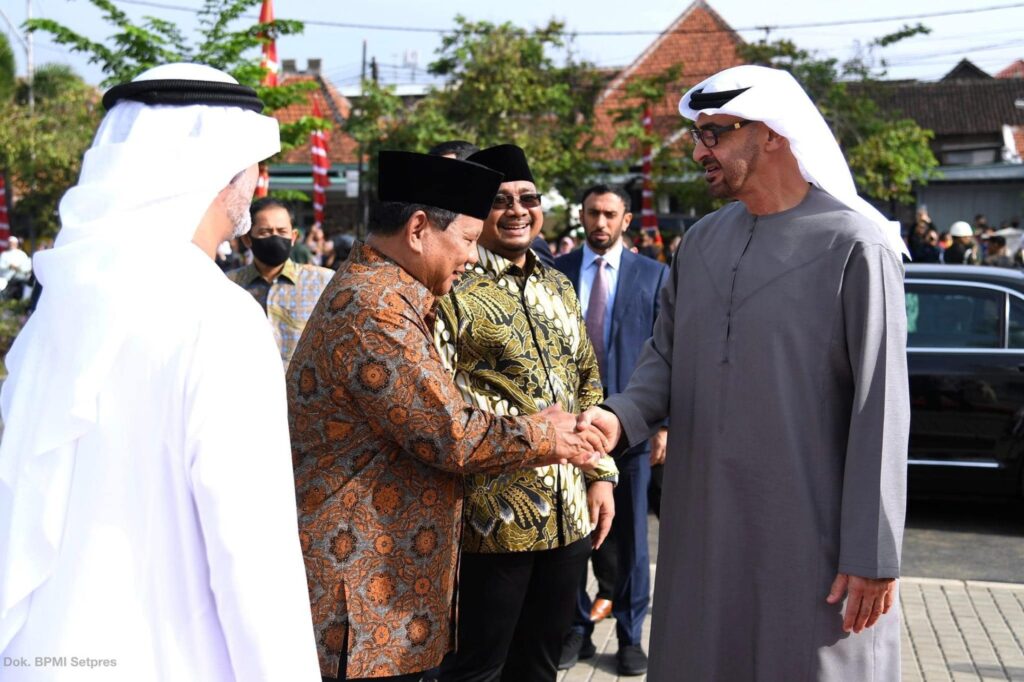Australia/Israel Review
Asia Watch: All in the timing
Mar 27, 2024 | Michael Shannon

Despite having such a long and controversial public record, the coming ascension of Prabowo Subianto to the Indonesian presidency in October still has experts and insiders questioning what he will actually do once he takes office.
Prabowo owes his election victory in no small part to his pledges of continuity with the policies of the popular incumbent Joko Widodo; that, and the drafting of Jokowi’s son Gibran as his running mate.
Yet, Prabowo could hardly be more different in terms of temperament, personal style and political background. For him, power is everything. The ever-ambitious former general was once Suharto’s son-in-law and a zealous defender of the regime, but when the political tide turned, he returned from exile as a democratic politician with authoritarian populist leanings.
It took several elections for Prabowo to recraft himself into an electorally appealing form, yet he is, and has always been, a military man. With that comes nationalism and a certain pragmatism where the national interest is concerned.
“National power must be military power,” Prabowo declared in a presidential debate on January 7. “Without military power, the history of human civilisation will teach us that a nation will be crushed like Gaza is currently.”
Since becoming defence minister in 2019, Prabowo has embarked on an ambitious military modernisation program that saw defence spending consistently rise, much of it directed towards equipment purchases and building up a domestic defence industry.
Notably, during this period Prabowo has also pursued closer ties in the Middle East. In 2021, he spoke at the opening of the International Institute for Strategic Studies’ Strategic Dialogue in Manama, Bahrain, where he emphasised Indonesia’s commitment to monitoring security in the Middle East, given the role of extremist groups in the region that also affect Indonesia. He has also worked to strengthen military cooperation with Qatar, Saudi Arabia and other nations in the region.
In 2023, Prabowo brokered a deal to buy second-hand Mirage fighter jets from Qatar, although the deal was recently cancelled due to budgetary constraints. He also visited the UAE at the invitation of President Sheikh Mohamed bin Zayed to discuss defence cooperation and participated in the IDEX exhibition in Abu Dhabi to promote the Indonesian defence industry. Sheikh Zayed recently conveyed his congratulations to Prabowo on his electoral success.
Prabowo also has strong ties with Jordan, where he spent years in exile following his discharge from the Indonesian military due to alleged insubordination and human rights violations during the fall of Suharto in 1998. His close relationship with King Abdullah dates back to military cooperation between the two countries in the 1970s and ’80s, while his time in the kingdom during the early 2000s included business ventures and a role as military adviser.
An obvious link between the UAE, Bahrain and Jordan is that all maintain diplomatic relations with Israel, the former two under the framework of the Abraham Accords in 2020. Moves to expand this diplomatic umbrella of Arab-Israeli normalisation have included overtures to the world’s largest Muslim-majority nation.
A recent article from the Israel Insider news service reported that Israel and Indonesia had planned to announce an upgrade of relations in October 2023, but the outbreak of war in Gaza has scuttled those plans, according to sources involved in the negotiations.
Andi Widjajanto, a senior adviser to Jokowi, and Ronen Levy, then the director-general of the Foreign Ministry and one of the key Israeli players in the Abraham Accords, met in Jerusalem in September, along with Dan Shapiro, who at the time was the US State Department’s senior adviser for regional integration, to finalise the text of a memorandum of understanding.
The MOU stated that the parties seek to “expand upon the Abraham Accords and promote peace, co-existence, mutual understanding and respect.” They further agreed to open reciprocal liaison offices focused on developing bilateral relations, with an emphasis on economy, trade, technology, innovation and culture.
The report noted Prabowo’s history of contacts with Israelis, including meeting with then-National Security Adviser Eyal Hulata at a conference in Manama in 2021. After the meeting became public, Subianto issued a statement saying it was not prohibited for him to speak to Israeli officials when it is in the national interest.
The Indonesian military has long maintained backchannel relations with their Israeli counterparts, purchasing military equipment during the 1970s and ’80s, while Prabowo has retained interest in Israeli military and agricultural technology. For him, the national interest trumps religious ideology – yet the intense pro-Palestinian feeling within Indonesia stirred by the Gaza war will give him pause.
Observers believe Jakarta-Jerusalem ties also hinge upon mooted Israel-Saudi normalisation, suggesting that the backlash would be lessened if the two occur in the same period. The Gaza war has forestalled this possibility for now.
Tags: Indonesia, Israel, Middle East, Palestinians






